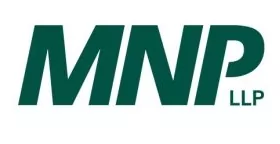The IASB has issued Investment Entities: Applying the Consolidation
Exception, an exposure draft of proposed amendments to IFRS 10
and IAS 28, with comments to be received by September 15, 2014. The
exposure draft reflects issues that have arisen in applying the
IASB's important conclusion, effective since the beginning of
2014, that an investment entity doesn't consolidate its
subsidiaries or apply IFRS 3 when it obtains control of another
entity; instead, such an entity measures an investment in a
subsidiary at fair value through profit or loss in accordance with
IFRS 9.
The investment entity exception is of course vitally important to
that industry and was crucial in allowing the Canadian Securities
Administrators to conclude that investment entities could and
should make the transition to reporting under IFRS, several years
after most other publicly-accountable entities. The highly specific
issues addressed in the exposure draft, flowing from questions
originally put to the IFRS Interpretations Committee, will
generally be of narrower interest, presumably affecting only a
small number of investment entities.
Exemptions from consolidation
One of these issues really relates to non-investment entities
and to applying the broader exemption from presenting consolidated
financial statements, provided by IFRS 10 for a parent entity
meeting certain criteria. One of the criteria is that the
entity's "ultimate or any intermediate parent produces
consolidated financial statements that are available for public use
and comply with IFRS." It's not necessarily clear whether
an entity that's not an investment entity can take advantage of
the exemption when it has an investment entity parent that produces
consolidated financial statements in which the entity itself and
all its holdings are measured at fair value: that is, does the
exemption depend on being able to demonstrate that consolidated
financial statements have been prepared and made available
somewhere in the structure?
The exposure draft proposes to clarify that the exemption is
available in this situation. The IASB observed among other things:
"When an investment entity measures its interest in a
subsidiary at fair value, the disclosures required by IFRS 12
Disclosure of Interests in Other Entities are supplemented by those
required in IFRS 7 Financial Instruments: Disclosures and IFRS 13
Fair Value Measurement. Accordingly, the IASB decided that this
combination of information provides sufficient grounds to retain
the existing exemption from presenting consolidated financial
statements for subsidiaries of investment entities that are
themselves parent entities. Removing the exemption so that any
subsidiary of an investment entity that prepares IFRS financial
statements would have to present consolidated financial statements
in such circumstances could result in significant additional costs,
without commensurate benefit." The proposed changes to IAS 28
would correspondingly amend the criteria around the exemptions from
preparing statements that apply the equity method of
accounting.
Investment entity subsidiaries
The investment entity exception currently contains a caveat that
an investment entity does consolidate a subsidiary that provides
services relating to its investment activities (such as management
support or advice), rather than measuring it at fair value; such a
subsidiary by its nature doesn't seem to be held to generate
revenues from capital appreciation and/or investment income.
Questions have arisen however, about subsidiaries that provide such
services while at the same time meeting the overall criteria to be
measured at fair value. After all, it's not possible to hold
investments to generate revenues without getting support, advice
and so on from somewhere, so such activities might be regarded, at
least up to a point, as an inherent aspect of what's covered by
the investment entity exception.
The IASB now proposes to clarify the standard as follows: "If
an investment entity has a subsidiary that is not itself an
investment entity and whose main purpose is to support the
investment entity's investment activities by providing
investment-related services or activities... it shall consolidate
that subsidiary... If the subsidiary that provides the
investment-related services or activities is itself an investment
entity, the investment entity parent shall measure the subsidiary
at fair value through profit or loss..." If an investment
entity has a subsidiary that say, doesn't hold any investments
and operates as a separate source of income, for example by
generating fees for various services, then such a subsidiary will
fall outside the purpose of the exception and will be
consolidated.
Applying equity-accounting
The other proposed changes to IAS 28 address the equity-accounting requirement (applying to interests in associates and in joint ventures) to prepare financial statements using uniform accounting policies for like transactions and events in similar circumstances. The IASB proposes to clarify that notwithstanding this general rule, if an entity has an interest in an associate that's an investment entity, then in applying the equity method it retains the fair value measurement applied by that associate to its interests in subsidiaries. On the other hand, if an entity is a joint venturer in a joint venture that's an investment entity, then it doesn't retain the fair value measurement applied by that investment entity joint venture to its interests in subsidiaries. Instead, the entity makes adjustments to the joint venture's accounting policies to conform to its own accounting policies, including consolidating all subsidiaries. The distinction reflects the IASB's assessment of the differences between equity accounting and joint control, including the possible different degrees of practical difficulty in obtaining the information necessary to unwind fair value information and apply the equity method, as well as the possible structuring opportunities that might exist when an entity has joint control over another.
The content of this article is intended to provide a general guide to the subject matter. Specialist advice should be sought about your specific circumstances.


